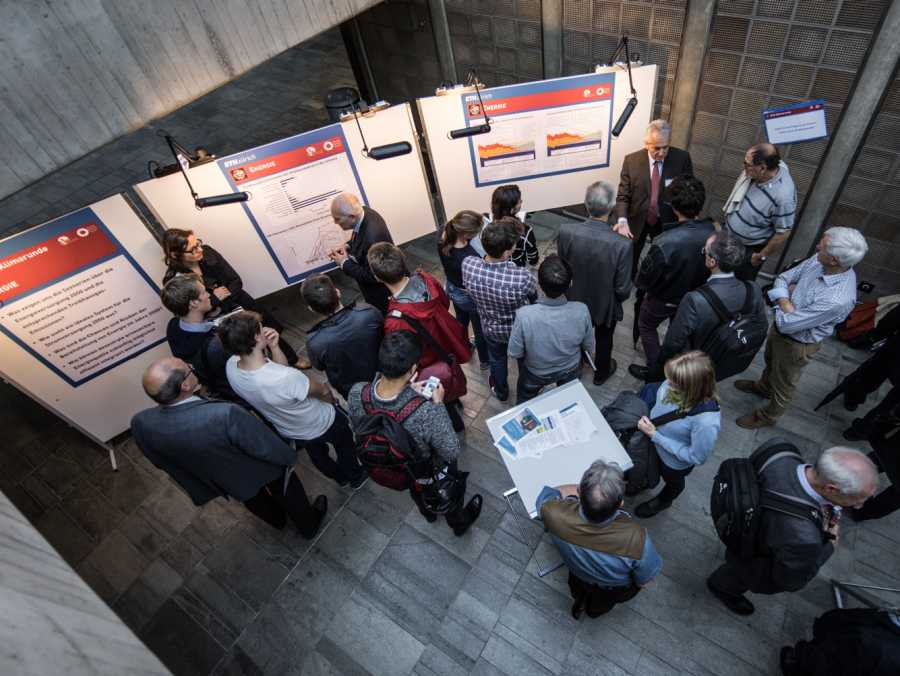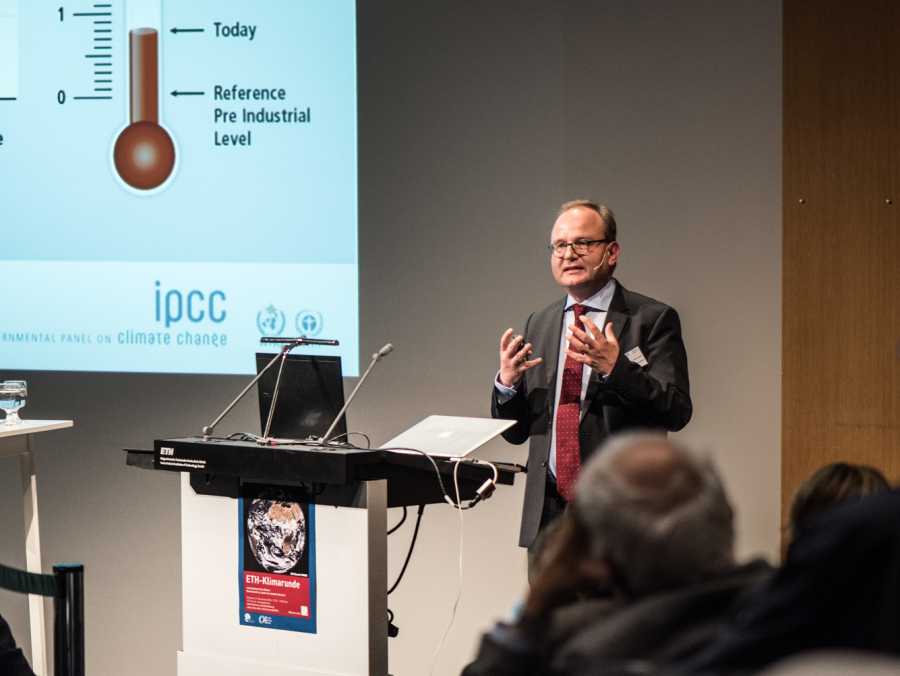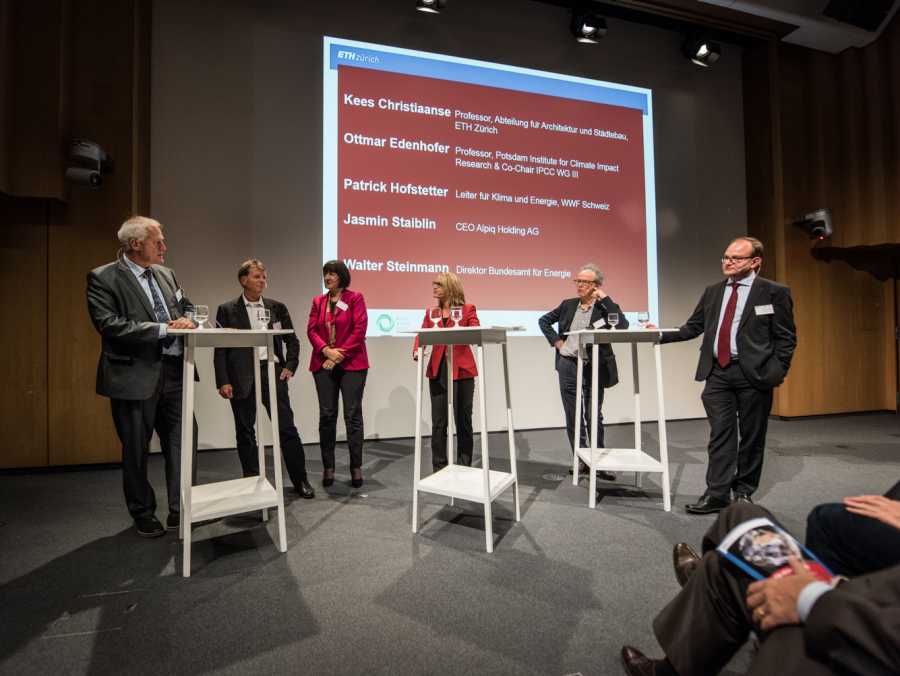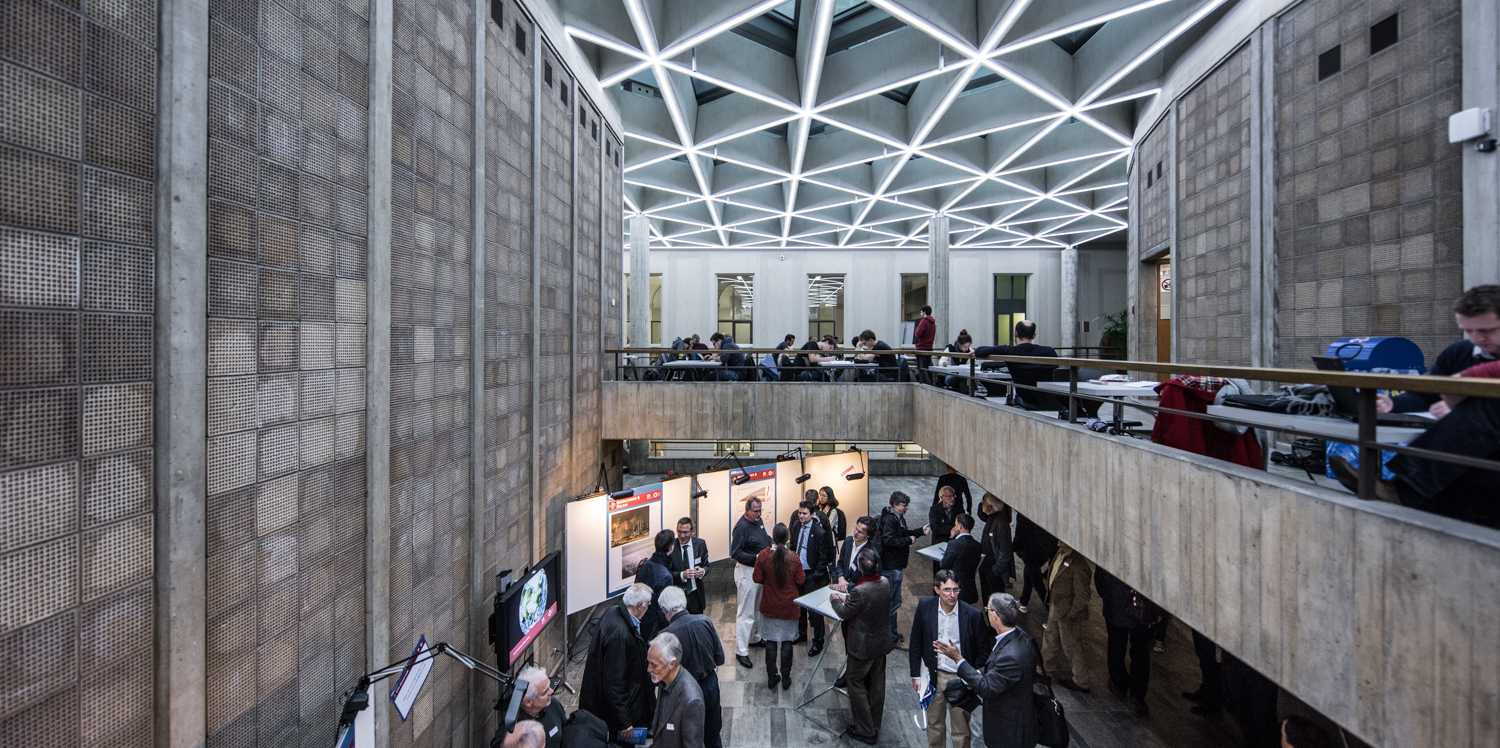"Research, promotion and reform"
The energy revolution can be achieved: this was the general tenor of the ETH Zurich Climate Roundtable held on Wednesday. However, this will require new technologies and innovation must be promoted accordingly. But the form that state regulatory intervention should take was the subject of controversial debate.
On Wednesday evening, almost 400 interested parties met for the Climate Roundtable at ETH Zurich. The event provided participants with the opportunity to exchange ideas and experiences with experts in a roundtable discussion, allowing them to debate the topics of climate change and climate protection measures in the energy sector and in urban planning. The presentations given in the well-attended Auditorium Maximum of the main building were shaped by the latest assessment of the Intergovernmental Panel on Climate Change (IPCC) – its Synthesis Report had been published a few days earlier – and the future of energy. The Climate Roundtable was organised by the Center for Climate Systems Modeling (C2SM), the competence centre for climate modelling at ETH Zurich and other federal institutions, and the Energy Science Center (ESC) at ETH Zurich.
During the event, Ottmar Edenhofer, Professor of the Economics of Climate Change at Technische Universität Berlin and co-head of the IPCC Working Group III, which looks at climate protection, presented the most important points from the IPCC’s Synthesis Report. He explained that greenhouse gas emissions are continuing to rise, with an increase in the rate of growth recorded during the last decade. Edenhofer emphasised that this has taken place despite the economic crisis and concerted international efforts in the area of climate protection. Measures taken to increase energy efficiency in recent years have been more than offset by economic and population growth, in which the renaissance of coal has also been a factor.
Economic growth is possible
“However, if we want to achieve the two degree target, it is imperative that the majority of coal, oil and natural gas resources remain in the ground,” said Edenhofer. Can mankind afford to make this change? Will the economy be able to cope with the transformation of the energy system? “Yes,” he said. “It does not cost the earth to save the planet.” Climate protection measures may be expensive – and the later they are taken, the more expensive they become – but, he continued, implementation of climate protection measures does not mean we have to forgo economic growth. It will just be delayed by one to several years, depending on the scenario.
Anthony Patt, Professor of Human-Environment Systems at ETH Zurich and co-author of the report from the IPCC Working Group III, spoke in his presentation about the requirements necessary to achieve the energy revolution: research, promotion and reform. The research landscape has to dedicate itself to, inter alia, the development of innovative and intelligent energy systems and the next generation of biofuels, he said. E-mobility, power storage systems and alternative energies need to be promoted, including extensive political reform in the electricity market.
How much regulation?
Opinions on how strongly the state should intervene in the market were divided. During the following podium discussion with high-ranking representatives from the Swiss Federal Office of Energy and the WWF, this topic was the subject of controversial debate. In her presentation, Jasmin Staiblin, CEO of energy group Alpiq, expressed her commitment to a CO2 tax. All at the conference were in agreement that such a tax is effective and necessary. However, Staiblin opposed vehemently any further governmental regulation.
Politicians have discussed, for example, the provision of state subsidies to enable climate-friendly energy sources to break through, at least until a CO2 tax takes effect. “It is not only innovation that is required, but also diffusion,” said Patrick Hofstetter from the WWF. Staiblin said she believed such subsidies distort the market and that the domestic hydropower sector would be under threat if it were not also subsidised. In respect to German climate policy, economist Edenhofer also judged such measures as not particularly effective.
Photo gallery Climate Roundtable 2014
-

During the table talks. (Photo: Rob Lewis / C2SM / ESC) -

Ottmar Edenhofer (Photo: Rob Lewis / C2SM / ESC) -

Panel discussion (Photo: Rob Lewis / C2SM / ESC)

